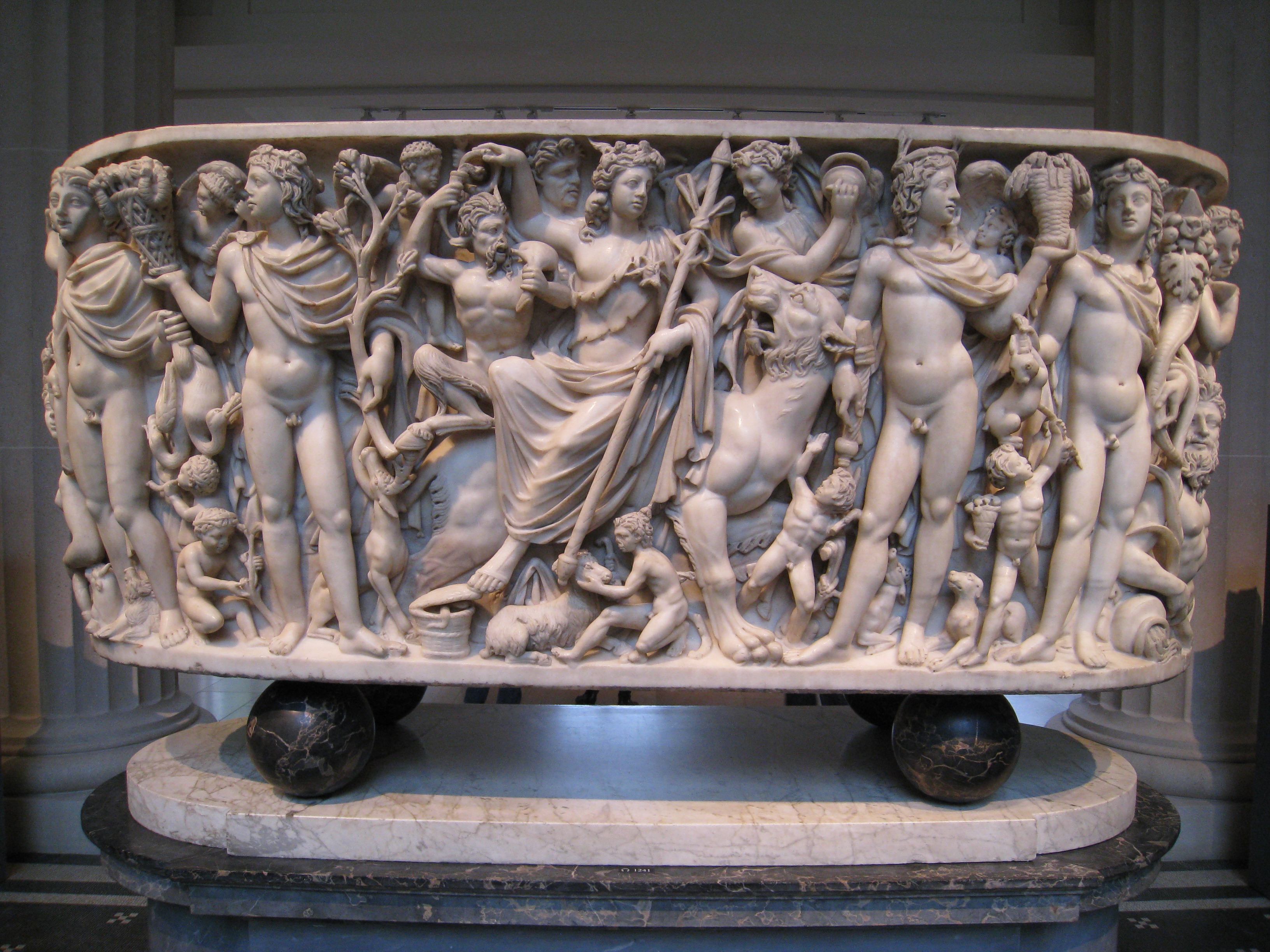 |
| Marble sarcophagus with the Triumph of Dionysus and the Seasons; Roman, circa 260-270 CE; Metropolitan Museum, New York [Public domain] via Wikimedia. |
 Twilight of the Idols/The Antichrist/Ecce Homo by Friedrich Nietzsche
Twilight of the Idols/The Antichrist/Ecce Homo by Friedrich NietzscheMy rating: 5 of 5 stars
The first interesting thing I discovered about Nietzsche is something I suspected when I read Beyond Good and Evil: Nietzsche "learnt much from La Rochefoucauld" (p. viii). And to start off with first principles, Nietzsche makes an interesting observation: morality is "a misrepresentation of certain phenomena, for there are no moral facts whatever (p. xi). I have now come to terms with the idea of Dionysian "chaos" versus the Apollonian "order". Interestingly, this struck me last night at the Canberra Symphony Orchestra's performances of Prokofiev's Piano Concerto No. 2 in G minor, op. 16 (with acclaimed Australian pianist Tamara-Anna Cislowska as the soloist), and Shostakovich's Symphony No. 9 in E flat major, op. 70. My friend and colleague, a sociologist, who invited us to the concert, has often spoken of these two opposing approaches. But until now, I have been ignorant to the depth of meaning that is so readily missed when one's antennae are not properly directed. And so, Nietzsche sees art as "Dionysian. It is amoral". "Christian art" is an oxymoron, yet Islam is "a virile religion, a religion for men". Nietzsche sees Christianity and alcohol as "the two great means of corruption" (p. 160). A central message (one of too many!) is that, "where the will to power is lacking, degeneration sets in" (p. 97). Nietzsche blames Saint Paul for destroying Rome, and Luther for destroying the Renaissance. Well I never! Kant perpetuated some of the decay, but Goethe, the antipodes of Kant, "disciplined himself into a harmonious whole, he created himself" (p. 81). Further, and while Nietzsche may well have predicted the World Wars, he may also have predicted the decay of our current institutions. Nietzsche argued that we have forgotten the purpose of our institutions (something that would seem apparent in my understanding of theories of institutional change), in effect, institutions require:
...a sort of will, instinct, imperative, which cannot be otherwise than antiliberal to the point of wickedness: the will to tradition, to authority, to responsibility for centuries to come, to solidarity in long family lines forwards and backwards in infinitum. If this will is present, something is founded which resembles the imperium Romanum: or Russia, the only great nation today that has some lasting grit in her.
In speaking of first principles, Nietzsche appears as a Neo-Con Flâneur (p. 72); yet he does not mince words:
First principle: a man must need to be strong, otherwise he will never attain it. - those great forcing-houses of the strong, of the strongest kind of men that have ever existed on earth, the aristocratic communities like those of Rome and Venice, understood freedom precisely as I understand the word: as something that one has and one has not, as something that one will have and that one seizes by force.
I can't pretend to know everything about Nietzsche, and I doubt I can commit to further study beyond a once-reading of the majority of his work. But something has changed in me as a result. I will blog about Ecce Homo in a subsequent post, as I am reading it in a separate book with an easier-to-read type-font, but from Nietzsche's autobiography, he arose from illness (and, paradoxically, to return to it soon after) to suffer no longer from "'ill-luck' nor 'guilt'". He "is strong enough to make everything turn to his own advantage" (p. 176). In this way, Nietzsche is much like Marcus Aurelius: Amor Fati. And no longer can my response be "merely" academic: I feel a weight of centuries lifting, I see why our institutions are crumbling, I fear the solution will not be forthcoming until the next major crisis disrupts human society yet again; I know that this will all be forgotten by future generations. And so time will march on. But Nietzsche does not leave me pessimistic, nor does he leave me disturbed as Viktor Frankl does. He leaves me free. Is this too dramatic? Read what I have read and tell me. I am all ears.
 Donate
Donate





